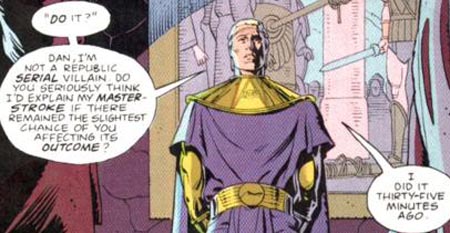- Ask the performers how they felt about the scene. Did they enjoy anything specifically? Did they feel themselves slip up or succeed? If they noticed a success you can tell them what was great about it and try to encourage any good tactics they've come up with. If they struggled with something, point out what made it difficult and how to steer out of that skid.
- If you are a performer as well, give yourself the harshest notes. Be the first to admit when you make a mistake, diagnose how you can fix it. Before you give anybody else a negative note, really search your work to see if you can apply it to yourself first.
- Acknowledge that there isn't one specific way to do things. Rules in improv only represent the simplest path to success, not the only path to success. I know improvisers who break every single rule and create wonderful, hilarious scenes without alienating their partners. If someone breaks a fundamental principle of improv but it still works somehow, discuss what made it work.
- Give mostly positive notes. Nothing hurts people's creativity more than you telling them that they're bad at playing make-believe. If you see a scene that has 20 bad ideas and 1 good one, rave about that good idea and forget all the bad ones. Yes! You were a genius to come up with that singular moment, let's do more of that awesome stuff! A positive atmosphere begets joyful work.
- Pay attention and react enthusiastically. Watch everything that happens, watch all the little things, get invested in the scenes and the characters. If something's funny, laugh. If something's sweet give'em an "awwwww." If they make a horrible pun, boo loudly. Don't spend too much time writing down your notes, if the note is that important you will be able to remember it after the scene. If you care about their work, the improvisers will care about their work too.
Those are the TOP FIVE THINGS (pew pew pew) to get you started giving notes. I stray from these occasionally, but I don't think straying has ever made my notes more insightful or better received. If anybody has any suggestions that could help with giving notes, I'd love to read them.

